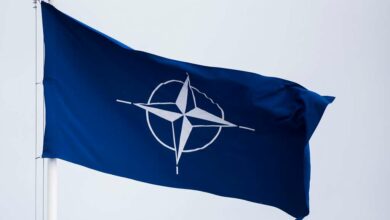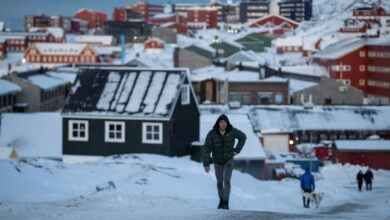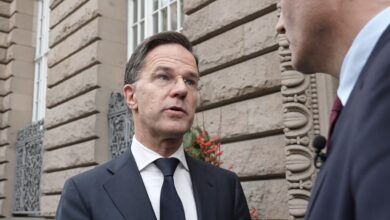MISRATA, Libya – Libyan rebel forces on Sunday entered the oil town of Brega and fought street battles there with forces loyal to Muammar Qadhafi, a rebel spokesman said, in the biggest offensive in eastern Libya in weeks.
"The news coming from there is there is a street war going on between Qadhafi troops and the rebels, and 127 are wounded from our side," Abdulrahman Busm, an official in the rebel National Transitional Council, said by telephone.
Brega, about 750km (465 miles) east of Tripoli, is the site of a strategic oil terminal. The attack could signal a new rebel push westwards from their main stronghold in the east of the country after weeks of stalemate.
NATO, which has been bombing Libya for nearly four months, said its warplanes had struck a military storage facility in Tajoura, an eastern suburb of Tripoli. It said the depot contained battle tanks and armored personnel carriers.
Qadhafi is refusing to step down despite a five-month-old rebellion against his rule, a campaign of NATO air strikes, and the defections of members of his inner circle.
The slow progress of the rebel military campaign has caused strains within NATO, with some member states pressing for a negotiated solution to bring a swift end to a conflict many thought would last only a few weeks.
QADHAFI DEFIANT
In a speech on Saturday, Qadhafi described the rebels as worthless traitors and rejected suggestions that he was about to leave the country. Reports have circulated that Qadhafi is seeking a negotiated way out of the crisis.
"They said Qadhafi will go to Honolulu," he said in a televised speech. "This is funny: To leave the graves of my forefathers and my people? Are you serious?"
His defiance came a day after Western and Arab powers, led by the United States, said the rebel leadership was the legitimate government of Libya and underscored their demand that Qadhafi and his family relinquish power.
Brega has changed hands several times in the back-and-forth fighting along Libya's Mediterranean coast since the rebellion began in February.
Rebels say taking it back will be a tipping point in the conflict on the eastern front. On Saturday they said a reconnaissance unit sent into the town in preparation for an attack had clashed with government forces.
Meanwhile, NATO warplanes have been targeting pro-Qadhafi forces near Brega. The alliance said targets hit on Friday included one tank, five armored fighting vehicles, and two rocket launchers near the town.
Libyan officials in Tripoli made no comment on any fighting in Brega, and it was not immediately possible to verify rebel accounts of what was happening there.
LIBYA THE NEXT SOMALIA?
Western governments and Libya's neighbors have expressed concern that the conflict could be exploited by Islamist militants, and especially by Al-Qaeda's North African wing.
"Niger's interest is that this crisis does not result in fundamentalists taking power (in Libya), that's our concern," said Mahamadou Issoufou, the president of Libya's southern neighbor Niger.
"Niger's interest is that the crisis resolves itself, that it does not drag on and that the Libyan state does not go the same way as Somalia," he said on state television late on Saturday.
On another front, in the Western Mountains region south-west of Tripoli, pro-Qadhafi forces exchanged artillery fire early on Sunday with rebels in the village of Qawalish, a rebel fighter manning a checkpoint there told Reuters.
The fighter, called Ahmed, also said four rebels were injured on Saturday when their vehicle hit a land mine on the southeast edge of Qawalish.
A minister in the rebel National Transitional Council flew from the council's base in the eastern city of Benghazi to the Western Mountains, part of a push to demonstrate the rebels are a united force despite tribal and ethnic differences.
"We are here to show solidarity with our brothers," said rebel culture minister Attia Eloujali, whose plane from Benghazi landed on a stretch of highway which the rebels have turned into a landing strip.
Rebels in the west of Libya "have played an important role in this revolution because they have spoiled the plot to divide the country into two parts, which Qadhafi was hoping to do," Eloujali told Reuters, in front of a school teaching the local Berber language which Qadhafi had banned.




